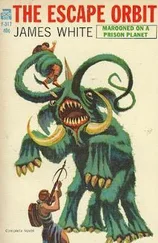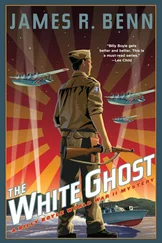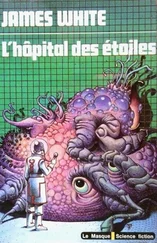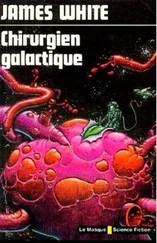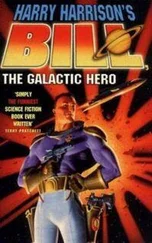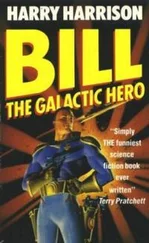Remrath was silent for several minutes, during which it finished the dessert and renewed its cautious attack on the cooling main course. Gurronsevas cringed at the very idea of consuming a course in the wrong order of presentation, but reminded himself that culinarily the Wem were still untutored. Finally the other spoke.
“Gurronsevas,” it said, “you are a cunning and devious grudlich.”
Plainly the word was exclusive to the Wem language because his translator gave the word-sound without a Tralthan equivalent. Deliberately he did not ask Remrath for an exact translation. He had taken enough insults for one day.
Supported by all the resources of Rhabwar’s clinical equipment and the expertise of its medical team, the culinary education of the Wem was proceeding apace. But the transfer of information was two-way and no longer restricted to cooking because the team were at last beginning to understand the full extent of the Wemar problem, and the Wem were seeing that problem from the viewpoint of the off-worlders who were trying to provide a solution to it. On both sides the learning curve had become satisfactorily steep.
Wemar had been a verdant, thickly-forested world whose dominant life-form had risen rapidly from pre-sapience to technologically advanced civilization by the traditional method of forming alliances and periodically threatening themselves with extinction through increasingly mechanistic forms of warfare. Fortunately, they had not developed nuclear fission or fusion power so that they survived with their civilization intact until they slowly learned the ways of peace and the population expanded without control. Unfortunately, they were an inward-looking culture that considered their world’s resources, its animal life and its growing and fossil fuel supply to be inexhaustible.
Until too late they did not have the orbiting eyes to see what they were doing to their planet.
With every new generation the Wem population tripled, and the levels of atmospheric pollution from its power-hungry and non-nuclear manufacturing processes kept pace, until the ionization layers protecting it against the harmful parts of the solar radiation spectrum became increasingly affected. Like the majority of worlds that had no axial tilt and seasonal temperature variations, the meteorological changes were driven only by Wem’s planetary rotation so that its weather systems tended to be unspectacular and predictable. As a result the pollutants found their way into the upper layers of the atmosphere to collect over the north and south poles. There the quantities of destructive material grew and spread, stripping the polar regions of their protective ionization and spreading inexorably into the upper levels of the stratosphere above the heavily populated temperate zones, and beyond.
It was a gradual process, but slowly the planetary surface from the poles to the sub-tropical latitudes adjoining the equator sickened and much of it died, as did the great herds of food animals that depended on the dying vegetation. The fish and underwater plant life occupying the on-shore shallows sickened as well, and in steadily increasing numbers so did the Wem — who starved without their meat. Worse, the sun, which had once caused plants and grasses eaten by their food animals to grow and thrive, was causing them to wither and die; and the Wem, too, were dying in great numbers from strange wasting diseases of the skin and eyes, caused by exposure to their increasingly lethal sunlight.
Gradually their technology collapsed. The steady attrition of population was accelerated by increasingly savage wars waged between the equatorial and comparatively well-fed Haves, who still had an adequate ionization layer protecting them, and the starving temperate zone Have Nots. Over the past two centuries the situation had stabilized, with the world population much diminished and the pollution it had caused removed, so that now the desperately ill planet was beginning to cure itself. The sun was beginning to reionize the upper atmosphere and renew the damaged protective layer.
In time, perhaps in four or five generations, the off-world teachers on Tremaar insisted, the cure would be complete. But only if the tragically few remaining Wem were able to survive, and they did not once again allow their population to grow out of control or reintroduce the old, dirty technology to support it.
“I tell you again,” said Gurronsevas very seriously, “the next time the Wem try to kill themselves, you might succeed.”
Remrath did not look up from the special cold desserts it was preparing for the teachers and students. Angrily, it said, “The Wem do not like being constantly reminded that we are criminally stupid. Certainly I don’t.”
“I feel very strongly about this situation,” Gurronsevas said quickly, “so that my words were hasty and ill-considered. You are neither stupid nor a criminal, nor is any other Wem that I know of. The crime was committed by your ancestors. The problem is inherited, but it is you who must solve it.”
“I know, I know,” said Remrath, still without looking up. “By eating vegetables?”
“Soon,” Gurronsevas replied, as he had done so often before, “there will be nothing else to eat.”
Over the past few days Remrath and he had grown close, as acquaintances if not friends, so much so that he no longer allowed politeness to get in the way of truth. At first this had worried the listeners on Rhabwar who, as well as supplying him with the information they had been able to discover or deduce about the Wem culture, kept reminding him that he was their only effective channel of communication. But they expected him to explain to Remrath and the other teachers a situation which, not being a medic or anthropologist or even a biologist, he did not fully understand himself.
When he asked for a fuller explanation it was usually Pathologist Murchison, speaking to him in a manner identical to that of Tawsar addressing a very backward pupil, who gave the densely clinical answer. Gurronsevas knew nothing about genetic rifts, or the various other-world precedents for the Wem’s apparent change from omnivore to carnivore eating habits at puberty, or the fact that on Earth tadpoles and frogs made the same changeover, and he cared less. So far as he was concerned, the legs of frogs were no more than a culinary delicacy enjoyed by some Earth-humans as well as a few other species with cultivated palates.
Unlike the Earth-human Murchison, in his youth Gurronsevas had never caught tadpoles or frogs, or kept one of them in a glass jar, because there was no equivalent of those life-forms on Traltha. But finally the pathologist had been able to make him understand the differences between the digestive systems possessed by herbivores, carnivores, and omnivores.
The large, meat-bearing herbivores were usually ruminants who had to graze continually while they were awake so that their multiple stomachs could metabolize the food which, because of its high proportion of vegetable fibre and low energy content, required a long time to digest and store. When threatened by predators, the grazers could move fast and sometimes protect themselves with horns or hooves, but they lacked the speed and stamina of the meat-eating carnivores whose food intake was more easily assimilated and available as energy.
It was only in rare environmental circumstances that a ruminant species evolved to planetary dominance or the level of intelligence that preceded civilization. If they were not hunted to extinction, they were domesticated, bred, and protected as a continuing source of food by the species which had achieved domination. And very rarely did a carnivorous species achieve the level of cooperation beyond the family unit that allowed an advanced culture to develop, and then only when they made major changes in their predatory behavior and eating habits.
Читать дальше
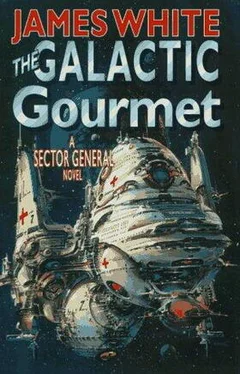
![Гарри Гаррисон - Bill, the Galactic Hero [= The Starsloggers]](/books/87536/garri-garrison-bill-the-galactic-hero-the-star-thumb.webp)
